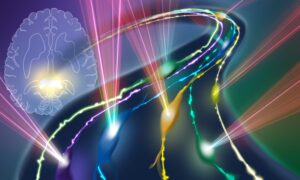
Follow the cellular road
Science & Technology An AI-enhanced advanced microscopy approach offers promise in better understanding glioblastomas, one of the deadliest brain cancers.
2024
science-technology

Science & Technology An AI-enhanced advanced microscopy approach offers promise in better understanding glioblastomas, one of the deadliest brain cancers.
2024
science-technology
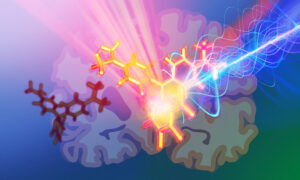
Science & Technology EMBL scientists applied molecular engineering to build photoacoustic probes to label and visualise neurons deep within brain tissue.
2024
science-technology

Science & Technology A new study from the Asari group at EMBL Rome shows a different retinal function in awake mice compared to isolated retinal samples. These new insights could help to develop prosthetic devices that can act as a retina in the future.
2023
sciencescience-technology

EMBL AnnouncementsLab Matters Interim head of EMBL Rome Cornelius Gross has been awarded an Advanced grant from the European Research Council (ERC) for his project TERRITORY, aimed at investigating the neural basis of territorial aggression and fear.
2023
embl-announcementslab-matters
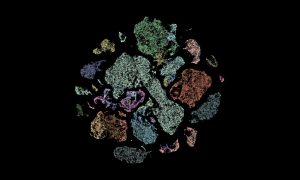
NIH BRAIN Initiative to fund brain atlases, network coordination, and knowledge sharing to explore brain function research.
2022
announcementsscience

EMBL Announcements Two former EMBL staff members have been recognised for their outstanding contributions to research in the fields of brain evolution and cancer.
2022
alumniembl-announcements
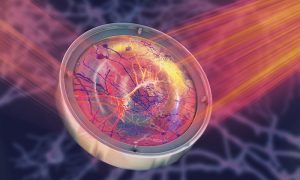
Science & Technology Scientists in EMBL’s Prevedel Group have developed a pioneering microscopy technique that allows researchers to observe cells hidden within opaque tissues, such as live neurons embedded deep in the brain.
2021
sciencescience-technology
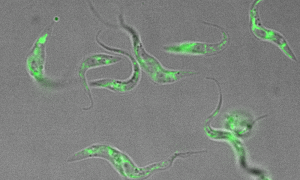
Science & Technology Members of the EMBL community are working to improve our understanding of the parasites that cause malaria and sleeping sickness
2020
sciencescience-technology
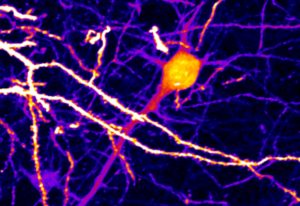
Science & Technology The brain is the most complex organ in the human body. Yet despite it being the organ that makes us conscious beings – and despite the fact that researchers have been studying it for generations – it’s still a constant source of surprise. To help lift the veil on some of its mystery, Lina…
2019
picture-of-the-weekscience-technology
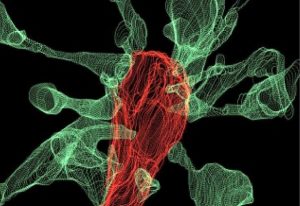
Science & Technology For the first time, EMBL Rome researchers have captured microglia nibbling on brain synapses on film.
2018
sciencescience-technology
Science & Technology What do bullies and sex have in common? Based on work by scientists at the European Molecular Biology Laboratory (EMBL) in Monterotondo, Italy, it seems that the same part of the brain reacts to both. In a study published today in Nature Neuroscience, the researchers found that – at least in…
2013
sciencescience-technology
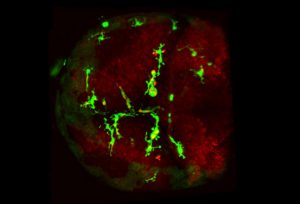
Science & Technology Like emergency workers rushing to a disaster scene, cells called microglia speed to places where the brain has been injured, to contain the damage by ‘eating up’ any cellular debris and dead or dying neurons. Scientists at the European Molecular Biology Laboratory (EMBL) in Heidelberg, Germany,…
2012
sciencescience-technology
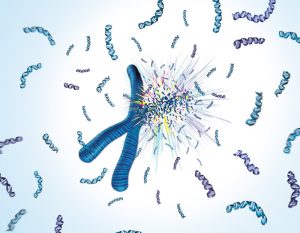
Science & Technology An inherited mutation in a gene known as the guardian of the genome is likely the link between exploding chromosomes and some particularly aggressive types of cancer, scientists at the European Molecular Biology Laboratory (EMBL), the German Cancer Research Centre (DKFZ) and the University…
2012
sciencescience-technology
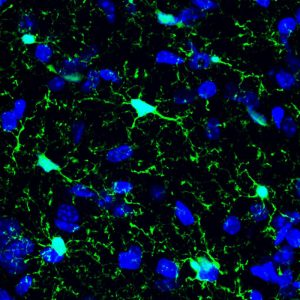
Science & Technology Gardeners know that some trees require regular pruning: some of their branches have to be cut so that others can grow stronger. The same is true of the developing brain: cells called microglia prune the connections between neurons, shaping how the brain is wired, scientists at the European…
2011
sciencescience-technology
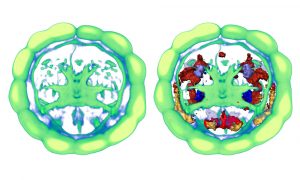
Science & Technology Our cerebral cortex, or pallium, is a big part of what makes us human: art, literature and science would not exist had this most fascinating part of our brain not emerged in some less intelligent ancestor in prehistoric times. But when did this occur and what were these ancestors? Unexpectedly,…
2010
sciencescience-technology
Science & Technology Fear can make you run, it can make you fight, and it can glue you to the spot. Scientists at the European Molecular Biology Laboratory (EMBL) in Monterotondo, Italy and GlaxoSmithKline in Verona, Italy, have identified not only the part of the brain but the specific type of neurons that determine…
2010
sciencescience-technology
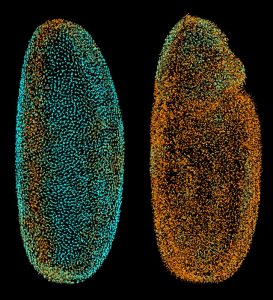
Science & Technology The scientists at the European Molecular Biology Laboratory (EMBL) in Heidelberg, Germany, who ‘fathered’ the Digital Embryo have now given it wings, creating the Fly Digital Embryo. In work published today in Nature Methods, they were able to capture fruit fly development on film, and were the…
2010
sciencescience-technology
Science & Technology Sudden Infant Death Syndrome (SIDS) is a condition that unexpectedly and unexplainably takes the lives of seemingly healthy babies aged between a month and a year. Now researchers of the European Molecular Biology Laboratory in Monterotondo, Italy, have developed a mouse model of the so-called crib…
2008
sciencescience-technology
No matching posts found
Looking for past print editions of EMBLetc.? Browse our archive, going back 20 years.
EMBLetc. archive